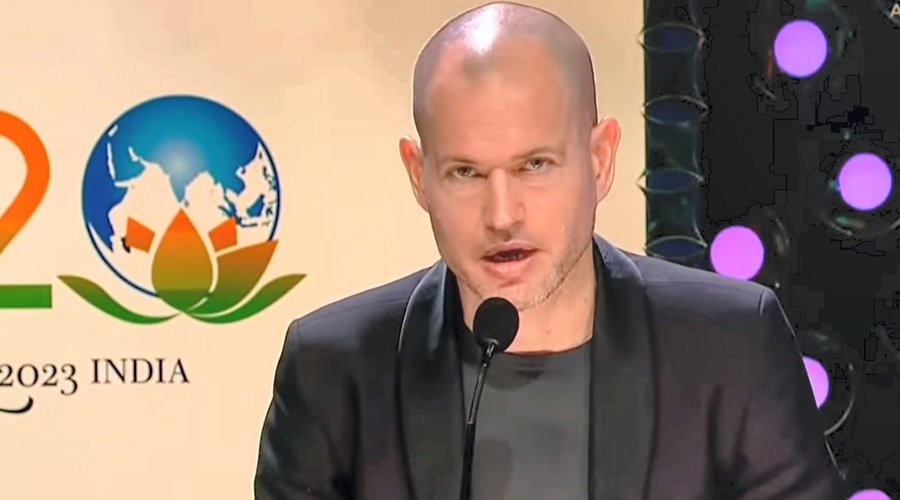Israeli filmmaker Nadav Lapid has said he stands by his criticism of The Kashmir Files because he “knows how to recognise propaganda disguised as a movie” and believes it was his “duty” to speak up.
“Making bad films is not a crime, but this is a very crude, manipulative and violent propaganda film,” Lapid said in an interview with Israeli newspaper Ha’aretz, unfazed by the backlash to his comments, made from the stage of the International Film Festival of India whose international jury he chaired.
“I feel as a foreigner who arrives there, you have an obligation to say the things that the people who live there may have a harder time saying,” the award-winning filmmaker said.
“In such contexts, I don’t believe in secrets and whispers. If you stand on stage and are asked to speak, what will you talk about? Only about the beaches you saw and the food you ate?”
The Kashmir Files portrays the attacks on Pandits in 1990 in a manner that seeks to demonise Muslims. The film was endorsed by Prime Minister Narendra Modi.
Speaking at the IFFI closing ceremony in Goa on Monday, Lapid described the film as “vulgar” and “propaganda” and unfit for the festival.
“The truth is that I also couldn’t help but imagine a similar situation that might happen one day soon in Israel,” the filmmaker said in the interview.
“And I would be happy that in such a situation, the head of a foreign jury would be willing to say things as he sees them. In a way, I felt it was my duty to the place that invited me,” Lapid added.
The film’s team and the BJP ecosystem have lashed out at Lapid for his comments, and Israel’s ambassador to India Naor Gilon wrote an open letter to him condemning his criticism of the film.
Asked if he had in-depth knowledge of the Kashmir conflict, Lapid said “of course did not know enough”. But, he added, “you can also watch films by Leni Riefenstahl (a German filmmaker who glorified the Nazi Party) and know what you’re seeing, without being a great expert on that period”.
“There are cases that are nuanced, but this is not the case. In a way, The Kashmir Files makes life easy because it is so bare and aggressive that it doesn’t even mask itself intelligently,” the filmmaker added.
Lapid made it clear he had commented only on the film and not the Kashmir issue, as many of those attacking him have alleged.
He was invited to the festival as a director and he talked about a film’s subject, Lapid said. “I did not come to express one position or another on the conflict in Kashmir,” he added.
“We learned that the film was pushed into the official competition of the festival due to political pressure,” he said.
Responding to the criticism he has received from Israeli diplomats in India, Lapid said his comments were “political” but not representative of his country.
“Since this is a film that the Indian government encourages, I assume that the government there is not happy about it. But is a country only about its government?” he said.
“I assume not. What I said is not comfortable for the government of India, nor for the government in the making in Israel, which the ambassador there represents.”
Lapid said he had received hundreds of emails and messages from Indians who were happy that “finally things were said that they believed in”.
In another interview, Lapid said he shared his views at the closing ceremony with a lot of “discomfort and apprehension”.
“I knew that this was an event that is terribly connected to the country, and everyone stands there and praises the government. It is not an easy position, because you are a guest,” he said.
“I am the president of the jury here, you are treated very nicely. And then you come and attack the festival. There was apprehension, and there was discomfort.”
But in countries that are increasingly losing the ability to speak the truth, “someone needs to speak up”, he said.
“When I saw this movie, I couldn’t help but imagine its Israeli equivalent, which doesn’t exist but could definitely exist. So I felt I had to, because I come from a place that is itself not reformed, and is itself headed this way,” Lapid added.











